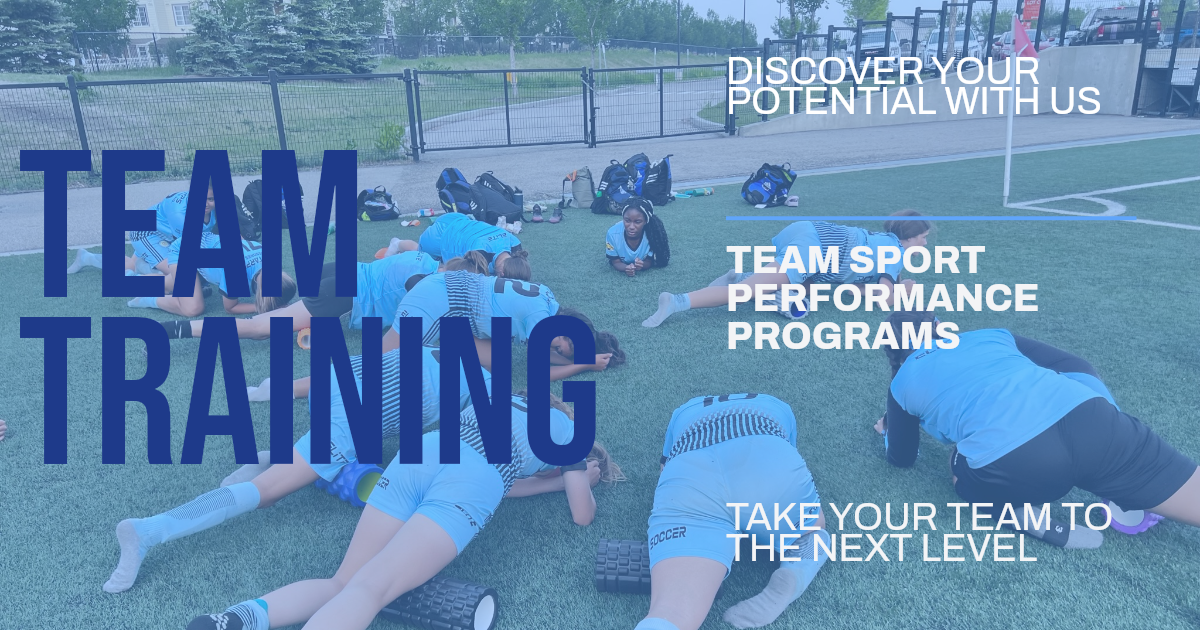The Power of a Team Strength and Conditioning Program for Youth Sports

As youth sports continue to grow in popularity and competitiveness, there’s increasing recognition of the need for well-rounded athletic development. One essential element often overlooked, however, is strength and conditioning (S&C). When implemented effectively, a structured team S&C program can provide numerous benefits for young athletes, not just physically but also mentally and socially.
In this post, we will explore the importance of incorporating strength and conditioning into youth sport programs and the various benefits it offers in terms of physiology, mental resilience, and team building.
1. Physiological Benefits of Strength and Conditioning
When it comes to youth sports, the primary goal of a strength and conditioning program is to enhance the physical capabilities of athletes. Strength training and conditioning exercises are not only for older, professional athletes but are essential for developing the foundational fitness required for youth athletes to perform at their best.
Improved Muscular Strength and Endurance
Strength training helps increase muscle mass, strength, and endurance. For young athletes, this means enhanced performance in sports, whether it's sprinting faster, jumping higher, or executing sport-specific movements more effectively. A solid strength base also contributes to injury prevention by strengthening muscles, tendons, and ligaments, making young athletes more resilient to strains, sprains, and other common injuries.
Better Mobility and Flexibility
In addition to increasing strength, conditioning programs often incorporate flexibility training, which is key for improving range of motion. This flexibility helps athletes move more efficiently and reduces the risk of muscle tightness or injury. A well-rounded program can also promote better posture and balance, which are critical for overall athletic performance.
Development of Aerobic and Anaerobic Capacity
Youth sports demand both aerobic (endurance) and anaerobic (short burst) energy systems, and a good conditioning program will improve both. Aerobic capacity helps athletes sustain longer periods of activity, while anaerobic conditioning (such as sprint intervals) aids in performing well in high-intensity, short-duration efforts.
2. Mental Benefits of Strength and Conditioning
The mental benefits of strength and conditioning are often underappreciated, but they are equally important to an athlete’s growth. Training not only builds physical skills but also mental toughness, focus, and confidence.
Boosted Confidence and Self-Esteem
As young athletes see improvement in their strength, speed, and overall fitness, it naturally leads to an increase in confidence. Strength and conditioning provides measurable results—whether it’s lifting heavier weights, running faster times, or simply feeling more fit—which can significantly boost an athlete’s self-esteem. The more confidence an athlete gains through training, the more likely they are to take on challenges and push past their limits in competition.
Resilience and Mental Toughness
Strength and conditioning programs, especially those that incorporate functional movements and sport-specific drills, are challenging by design. These workouts often require athletes to push through discomfort and persevere when things get tough. As athletes learn to cope with physical challenges, they also develop resilience and mental toughness that can transfer to their sport, helping them maintain focus and composure under pressure.
Reduced Anxiety and Stress
Regular physical activity, especially strength training, has been shown to reduce symptoms of anxiety and stress. For young athletes, being able to manage the pressures of school, home life, and sports competition can be incredibly valuable. Strength and conditioning provides a healthy outlet for stress while also improving mood by releasing endorphins, the body’s natural “feel-good” hormones.
3. Team Building and Social Benefits
Beyond the physical and mental gains, a strength and conditioning program can foster a strong sense of camaraderie and team unity.
Improved Team Cohesion
When athletes work together in a team strength and conditioning program, they bond over shared challenges and successes. The collective nature of group training allows athletes to support one another, cheer each other on, and celebrate individual and team accomplishments. This sense of shared effort helps foster team cohesion, which can translate into better communication, trust, and collaboration on the field or court.
Healthy Competition and Motivation
Training as a team also allows for healthy competition. Athletes can push one another to improve while maintaining a positive and supportive atmosphere. This can inspire individuals to put in extra effort, try new techniques, and strive for continuous improvement. At the same time, teammates learn to celebrate each other’s success, reinforcing a team-first mentality and reinforcing the importance of collective achievement.
Building Leadership Skills
In a group training environment, athletes have opportunities to take on leadership roles, whether it’s encouraging a teammate or helping lead warm-up exercises. These experiences help young athletes develop confidence in their leadership abilities and a sense of responsibility. As a result, athletes grow not only in their physical abilities but also as leaders, both on and off the field.
Conclusion
A well-rounded team strength and conditioning program is a cornerstone of athletic development for youth sports. By enhancing physical performance, improving mental toughness, and fostering team cohesion, these programs prepare young athletes for long-term success. Coaches and parents who prioritize strength and conditioning programs not only help young athletes become stronger and more skilled in their chosen sports, but they also equip them with valuable life skills such as resilience, leadership, and teamwork.
Ultimately, investing in strength and conditioning for youth athletes offers a holistic approach to development, benefiting not only the body but the mind and social fabric of the team as well. Whether it’s in sports or life, the strength and confidence gained from these programs will have a lasting impact on young athletes for years to come.
Ready to train?
If you're looking to grow muscle, increase explosiveness and practice result-driven routines to make an impact for your next sport season, hit the link below and train with us today!
.svg)
.svg)
.avif)
